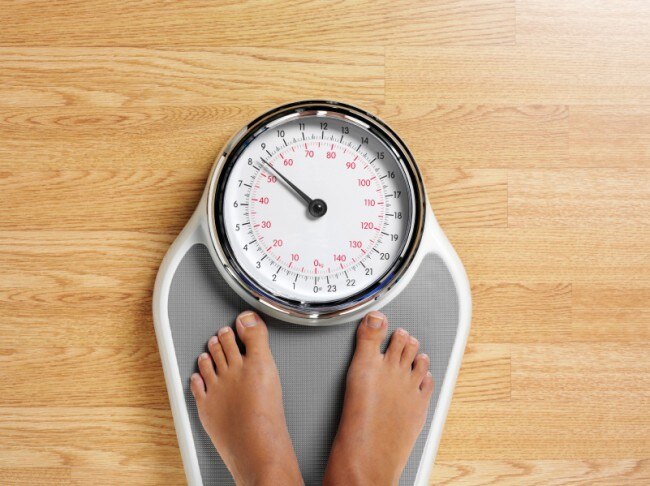By Rita Brhel, NFCA volunteer
I was not unlike many people when they are finally diagnosed with celiac disease after years of nutrient deficiencies — skinny, too skinny. And I expected to gain a little weight once I went gluten-free and my health started improving. But I was surprised when I kept gaining and gaining and gaining, and my pants kept getting tighter and tighter.
The problem is, not eating gluten — a food category that includes wheat, barley, rye, and their derivatives — is a treatment for a medical condition, not a diet plan in and of itself. It’s true that going gluten-free is touted by some as a way to lose weight, but it’s not as easy as substituting gluten-free grains in your diet.
Going gluten-free was essential for healing my gut and related skin rash, but when it came to weight management, I had to get back to the basics of healthy eating. I never had to concern myself with weight gain before, so I didn’t know how to eat.
My first step was to give a call to that dietitian my doctor had recommended. Then, I began to learn about nutrition, like the difference between a protein, a carbohydrate and a fat. And what makes carbs and fats good or not, and which food groups count as a protein or a carb or a fat. And what kinds of foods go in those food groups, and what a single serving size actually looks like. And what to eat at different times of the day, according to my individual energy fluctuations.
Sounds complicated, doesn’t it? Boiled down, my lesson has been that taking out gluten doesn’t eliminate the need to read food labels. You still have to pay attention to calories, sugar content and saturated fats, especially in prepackaged, processed foods. Going gluten-free, and all this nutritional education, though, gave me the initiative to seek out healthier foods overall.
I eat mostly fresh, whole foods. The majority of my carbs are vegetables, fruits and whole grains. I eat breakfast every morning, which jump-starts your metabolism and stabilizes your blood sugar after the nighttime fast. If your blood sugar is level, you’re not craving quick energy, which often comes in those unhealthy carb packages. Any carb is paired with a protein, which again does your blood sugar good by balancing the quick-energy carbs and the longer-acting proteins. Meals heavy on grain-based carbs, such as starchy vegetables, pasta, and rice, are a good pick for supper because you’ll be headed to bed at about the time you start feeling tired while digesting. I limit soft drinks and desserts. Oh, and I try to get some exercise in every day and a good night’s sleep, both of which promote good weight management.
Prepackaged, processed gluten-free foods like crackers and cookies are very convenient and are OK in moderation. But if you want to drop a few pounds or maintain your current weight, eating a diet rich in fruits and vegetables as your carbohydrate base is as important for someone who is gluten-free as it is for anyone else.

